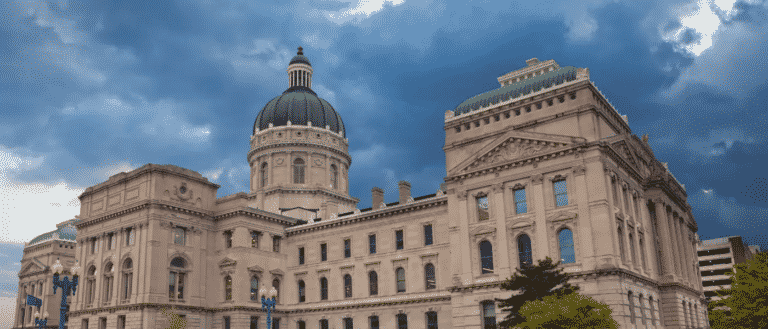Complexities Of Online Gambling In Tribal Gaming States

The Oregon Lottery launched its Scoreboard sports betting app earlier this month, but not everyone in the state can log-on and place wagers. Anyone on tribal lands is excluded from using the Scoreboard sports betting app.
The exclusion of tribal lands is in place to avoid interfering with tribal compacts between the state and its tribal gaming operators. As such, sports bets in Oregon cannot be placed through the Oregon Lottery’s Scoreboard app on tribal lands.
The reason? Sports betting isn’t covered under the state’s tribal compacts. Therefore, if the state offered its sports betting app on tribal lands, it could be seen as a breach of the compacts. That leaves us with the current geofencing scheme.
“We’re staying in our lane and letting the tribes do what they want,” Matt Shelby, an Oregon Lottery spokesman told CNBC.
A Checkerboard of Tribal Lands
Geo-fencing tribal land is trickier than geo-fencing a state, particularly in Oregon, where swathes of Indian reservations have been sold (with federal approval) to non-tribal entities in private sales dating back to the 1800s.
According to Chris Stearns, Commissioner of the Washington State Gambling Commission, and a tribal gaming expert, these sales, under the General Allotment Act, have created a checkerboard of tribal lands.
Excluding the “checkerboard” of tribal lands from Oregon’s Scoreboard app has fallen to GeoComply, the company that supplies the Oregon Lottery with its online geolocation services. In Oregon, GeoComply needs to exclude hundreds of tribal land zones.
Not only does that increase preparatory work, but it also increases ping frequency. The closer a customer is to a border (be it a state border or exclusion zone), the more frequently GeoComply has to check that person’s location to ensure they haven’t crossed over to an excluded area.
Tribes Are Unlikely to Explore Mobile Sports Betting Options
Under the Indian Gaming Regulatory Act (IGRA), tribes may operate Class III gambling activities (which includes sports betting) on Indian lands, provided they are covered under a tribal-state gaming compact.
With the state offering sports betting, tribes are also capable of doing the same. And one tribe has already opened a sportsbook in the state. The sportsbook at Chinook Winds Casino Resort in Lincoln City, Oregon, opened on August 27.
However, the patchwork of tribal lands limits a tribe’s options. Not only does it increase the difficulty of exclusionary geo-fencing, but as Stearns points out, it makes inclusionary geo-fencing (a tribe offering online sports betting on its tribal lands) near impossible.
“The geofencing would have to be a series of multiple geofenced plots which really wouldn’t make sense for the tribes,” Stearns told Betting USA. “That is why you are seeing a preference for “premise only” internet wagering in the tribal bill for sports wagering in Washington State.”
What About the Server Location Argument?
Several states are getting around these issues by including language along the lines of “a bet is placed at the server,” in their legislation. New Jersey’s online betting framework is one example of this, where an existing state law disallowed casino gambling outside of Atlantic City. That led to server location language in its internet gambling law that effectively said, if the server is in AC, operators can accept sports bets in NJ statewide.
That raises the question if tribes could argue the same case, and claim that because the servers are on tribal lands, all internet betting is occurring on tribal lands?
Stearns sees this as unlikely, and a risk most tribes are unwilling to take.
“My assumption for Oregon is that Tribes cannot conduct internet sports wagering off-reservation without some sort of license or arrangement with the State.
“The real question for the tribes is whether they want to be able to offer internet sports wagering, and if so, do they want to offer it statewide? If they do, then it’s very possible they will need some form of state authorization. I believe that is the scenario that the Michigan tribes are looking at.”







